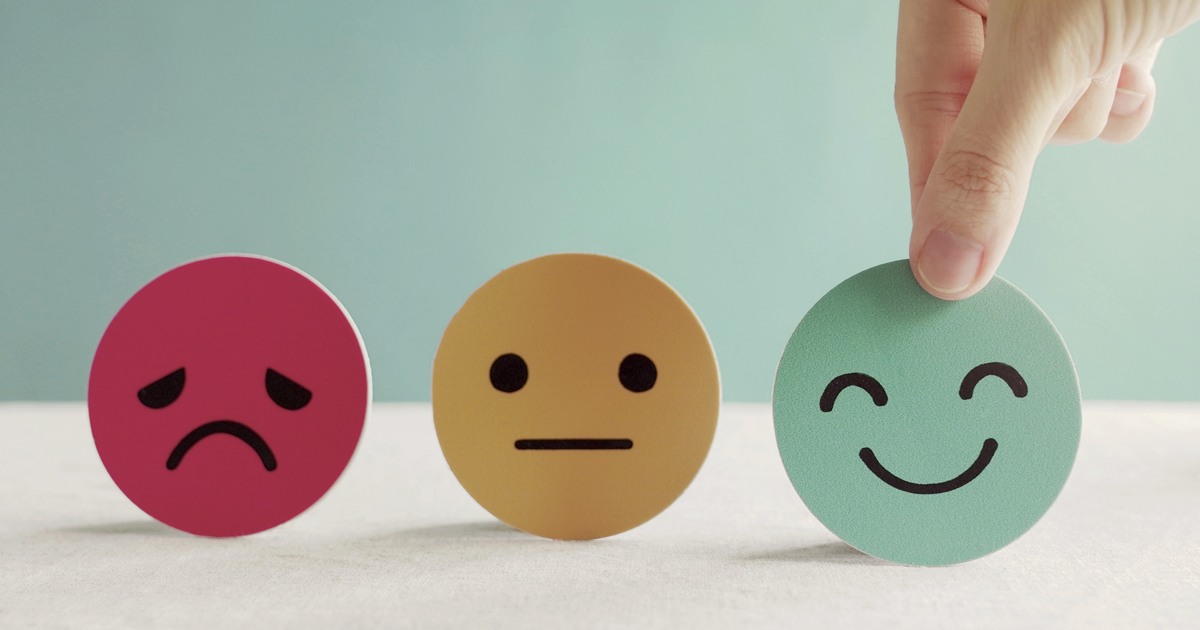“How are you feeling today?” Last year, my son’s teacher asked this at the end of every day of online kindergarten. Most days I listened to my sweet, resilient boy share that he was happy. But one day, I knew he’d been struggling. He shared with me during a recess break that he really didn’t like online school, that he missed playing with his friends and that he just wished the “stupid virus” never came.
I held him as his tears fell hot and heavy on his cheeks. I agreed that online school wasn’t much fun, and that it was OK to miss his friends. A few minutes later the tears stopped, and I asked him how he was feeling. “Still sad,” he responded, and I assured him that was OK. Sometimes I feel sad, too.
Not more than 30 minutes later, when prompted to share about his feelings with his teacher, he plastered a fake smile on his face and declared to his class, “I feel happy because I like online school.”
Wait, what? After school, I asked my son why he had answered the way he did. Had his feelings changed?
“No,” he replied, “but my teacher doesn’t like when we aren’t happy.”
I encouraged him to tell the truth about his feelings next time. What was the point of a feelings check-in if you couldn’t be honest? Wasn’t that what it was for?
So the next day, my son did just that. Bravely, he shared with his class that he, in fact, didn’t like online school and that not being in class with his friends made him feel sad. My mommy-heart cheered him on. “Yes! Way to go!”
His teacher’s response, however, broke my heart. She answered, “Oh, no, you mustn’t feel sad. You need to be happy to be at online school.”
Which is quite sad.
I fear my son’s experience is not unique. We live in a culture of toxic positivity that thrives off memes that quip, “Don’t Worry, Be Happy,” and T-shirts that read, “Good Vibes Only.” Some feelings are easier to bear than others, but trying to exist in a “Good Vibes Only” world isn’t realistic or healthy. There are lots of vibes in the world, some of them positive, many of them negative, a surprising number of them neutral. And while society likes to label some emotions as “good” and other emotions as “bad,” all emotions are God-given and good for us.
Researcher and author Brené Brown argues that we cannot selectively numb emotions. When we numb the painful emotions such as sadness, anger and disappointment, we also numb the positive emotions. We would never want to numb our bodies of physical touch. We enjoy feeling pleasant things, such as the sun warm on our faces, the embrace of a loved one or our favourite cozy blanket, but we also need to feel pain to protect ourselves from further harm. In the same way that aches and pains tell us about the body, emotions tell us about our spirit. We need to pay attention to them.
Peter Scazzero, author of Emotionally Healthy Spirituality, agrees. “Ignoring our emotions is turning our back on reality,” he writes. “Listening to our emotions ushers us into reality. And reality is where we meet God. Emotions are the language of the soul. They are the cry that gives the heart a voice.”
Jesus modelled this for us during his time of earthly ministry. In the Gospel accounts of his life, we see Jesus described as being full of joy as he converses with his disciples (see Luke 10:21), as righteously angry when he sees money-changers in the temple (see John 2:13-17; Matthew 21:12-17), as fatigued after a long day of ministry (see Mark 6:31), and as agonized and afraid as he prepares himself in the Garden of Gethsemane for his impending death (see Luke 22:42). Jesus even felt sadness, weeping at the tomb of his friend, Lazarus (see John 11:35).
Jesus felt a full spectrum of emotions during his time on earth, and probably continues to feel these emotions as he interacts with and intercedes on behalf of the world today.
How are you feeling?
Whatever your heart is feeling today, let yourself feel it. Jesus knows what it is like to feel the way you do, and he feels it, too. After all, God made us in his image, able to feel deeply.
So, here’s to all the vibes—good, negative or otherwise. Because, with God, all vibes are welcome.
Captain Laura Van Schaick is the divisional secretary for women’s ministries in the Ontario Division.
Photo: ThitareeSarmkasat/iStock via Getty Images Plus
This story is from:










One of the most authentic articles I've read recently. Thank you Major Laura